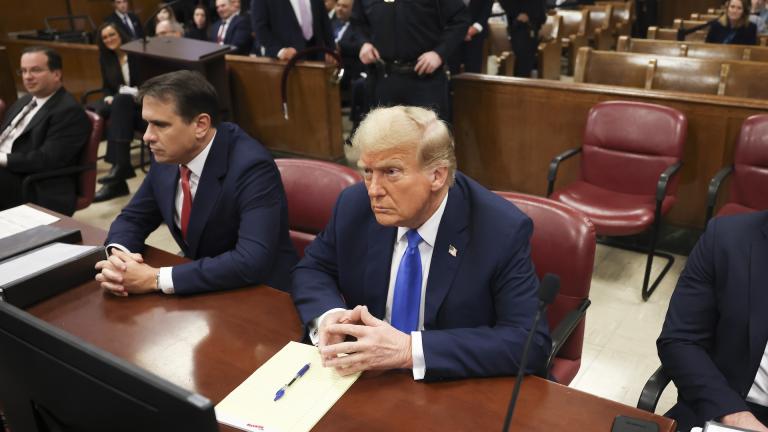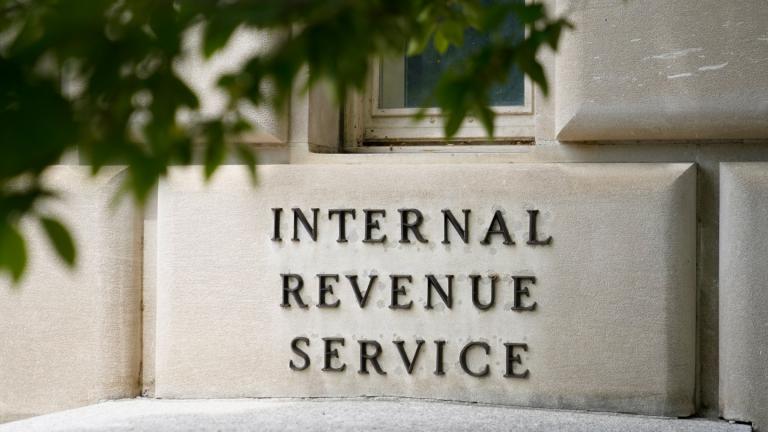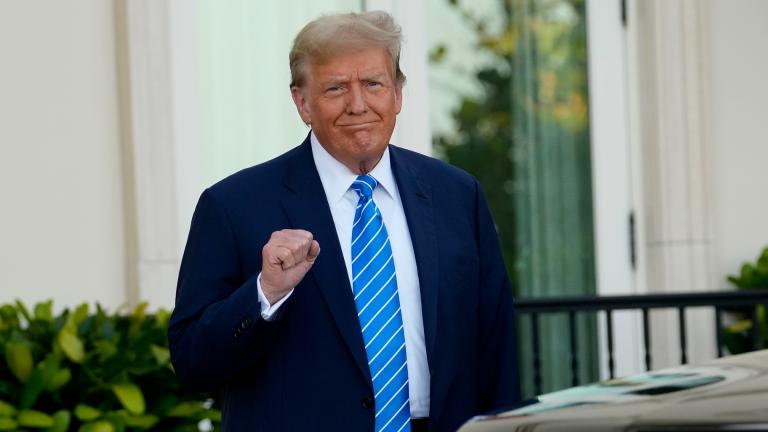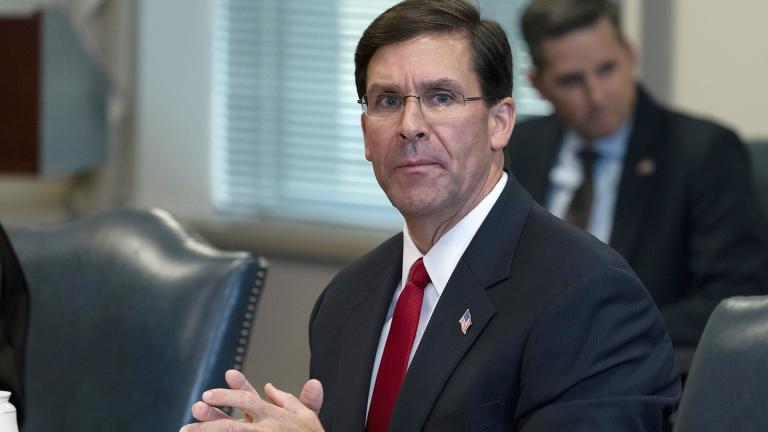With Donald Trump and Sen. Bernie Sanders winning convincingly in their respective Republican and Democratic primaries in New Hampshire, one thing is clear: Voters on both sides of the political spectrum seemingly want little to do with establishment candidates or establishment politics.
So After New Hampshire, is Sanders the new Democratic front-runner? And for Republicans, can anyone catch the renegade candidacy of Trump? Our panel of political experts assesses the race so far and attempts to predict what may happen going forward.
Joining “Chicago Tonight” are Jaime Dominguez, a lecturer in political science at Northwestern University; Wayne Steger, a political science professor at DePaul University; and Jim Warren, chief media writer for the Poynter Institute and national columnist for U.S. News and World Report who wrote a story today on the New Hampshire primary, titled, "Can the establishments strike back?" Read it here.
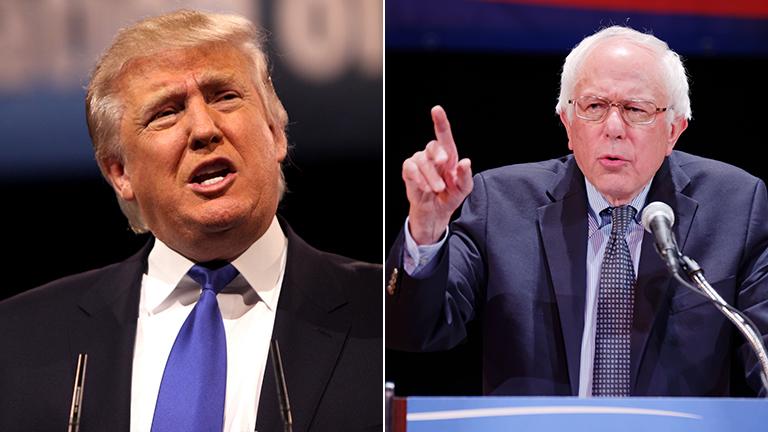 Donald Trump (Gage Skidmore / Flickr) and Bernie Sanders (Michael Vadon / Flickr)
Donald Trump (Gage Skidmore / Flickr) and Bernie Sanders (Michael Vadon / Flickr)
During phone interviews with two of our guests on Wednesday afternoon, opinions were split on who the Democratic front-runner is following Tuesday’s primary.
For Steger, Clinton is still up front, but she’s not at full power.
“She’s much diminished from where she was two weeks ago and certainly much diminished from where she was six months ago,” he said.
Dominguez, however, said it’s too early to know. “So far we’ve only had Iowa and New Hampshire, demographically speaking those two states are not really representative of the larger U.S. electorate,” he said. “We’re about to see where Hilary’s positioned with Latino voters, particularly in Nevada where almost 18 percent of voters are Latino.”
But the bigger news of the night for Democrats was Sanders’ big win with millennials, Dominguez said. “Young people became the story in the New Hampshire primary on the Democratic side,” he said. “It shows that they are interested in the issues that Bernie Sanders is talking about and with the right outreach and ground game they can continue to be relevant in the conversation.”
Steger questioned whether Sanders would be able to sustain momentum, particularly in the face of changing demographics. “Upcoming state primaries, in particular in Nevada and South Carolina, are less white and more moderate politically,” he said.
Republican front-runners
“So the GOP tussle is the more engrossing,” Warren wrote in a U.S. News and World Report story posted online today. “Even after months on top of the polls the Trump phenomena – and the fact that it actually produced at the ballot box – remains surprising to many, while few envisioned Cruz both winning Iowa and winding up a very respectable (and low-spending) third in New Hampshire.”
“In ‘The Art of the Deal’ he said that controversy sells,” said Steger of Trump’s often controversial statements. “He has pursued that strategy. When there’s a lull, when it looks like he’s fading he comes in, throws a bomb out there, gets all kinds of media attention, draws it in, sucks the air out of everybody else’s campaigns. And he goes forward.”
As to which “establishment” candidate might fare bets in a general election, Dominguez said Jeb Bush might be more appealing. “His ability to make inroads with potential constituencies within the Democratic party – such as Latinos – I think that can be very beneficial to him going forward.”
"I do think ultimately it'll be either Cruz or Trump. And I do think the Republican establishment – to the extent that it exists – will rally around Trump," said Steger.
"I think they've got dyspepsia, they've got heartburn over either," said Warren. "It'll be the lessesr of two alternatives. The smart folks know that in a general election campaign, with a lot of independent-minded folks, say, a lot of suburban females, that these two guys are potentially deadly. Unless one has somebody who is also an exotic competitor, like a Bernie Sanders."
Watch the video to hear more analysis from our panel.
Upcoming primaries and caucuses through March 15
| DATE | STATE |
| Feb. 20 | Nevada Democratic caucus |
| South Carolina Republican primary | |
| Washington Republican caucus | |
| Feb. 23 | Nevada Republican caucus |
| Feb. 27 | South Carolina Democratic primary |
| March 1 | Alabama primary |
| Alaska Republican caucus | |
| American Samoa Democratic caucus | |
| Arkansas primary | |
| Colorado caucus | |
| Georgia primary | |
| Massachusetts primary | |
| Minnesota caucus | |
| North Dakota Republican caucus | |
| Oklahoma primary | |
| Tennessee primary | |
| Texas primary | |
| Vermont primary | |
| Virginia primary | |
| Wyoming Republican caucus | |
| March 5 | Kansas caucus |
| Kentucky Republican caucus | |
| Louisiana primary | |
| Maine Republican caucus | |
| Nebraska Democratic caucus | |
| March 6 | Maine Democratic caucus |
| Puerto Rico Republican primary | |
| March 8 | Hawaii Republican caucus |
| Idaho Republican primary | |
| Michigan primary | |
| Mississippi primary | |
| Democrats abroad | |
| March 12 | Guam Republican convention |
| Northern Marianas Democratic caucus | |
| District of Columbia Republican caucus | |
| March 15 | Florida primary |
| Illinois primary | |
| Missouri primary | |
| North Carolina primary | |
| Northern Mariana Islands Republican caucus | |
| Ohio primary |
See more of the 2016 primary schedule here.

